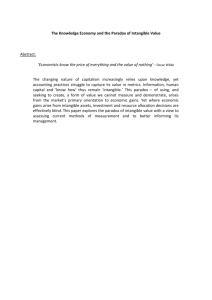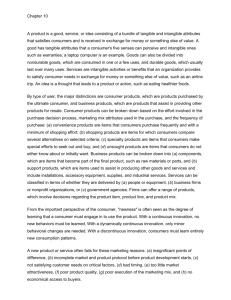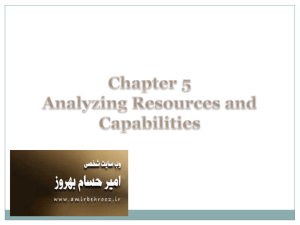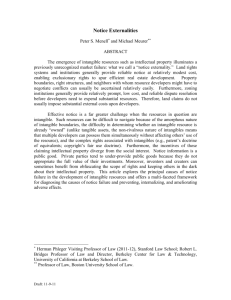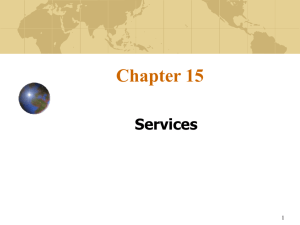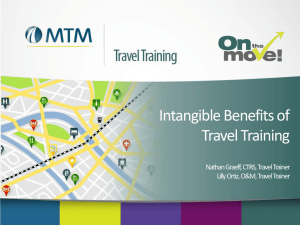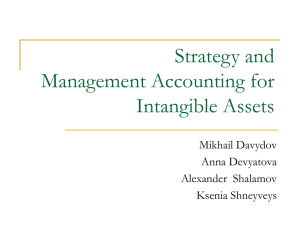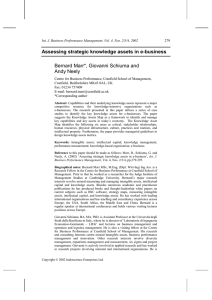3.5 Intangible Assets
advertisement
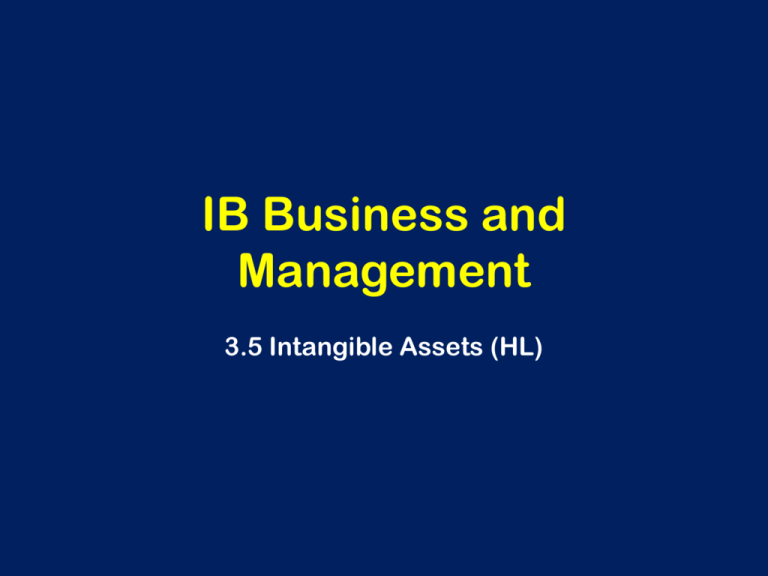
IB Business and Management 3.5 Intangible Assets (HL) Learning Outcomes • Explain the meaning and value to the firm of different types of intangible assets. • Understand the difficulties associated with valuing tangible assets What are Intangible Assets? • Intangible assets are the long-term resources of an entity, but have no physical existence. • Intangible assets contribute to the disparity between company value as per their accounting records, and company value as per their market value Types of Intangible Assets • Intangible assets are generally classified into two broad categories: • (1) Limited-life intangible assets – Patents – Copyrights – Goodwill – Brands • (2) Unlimited-life intangible assets – Trademarks. Challenge: Forbes compile a list of the world’s most valuable brands. In Pairs: Write down 20 brands that you think would be in the top 20. Let’s see how many you get correct. House points for the pair who get the most correct http://www.forbes.com/powerful-brands/list/ The Brand Chart…. Top 20 Rank 1 2 3 4 5 6 7 8 9 10 11 12 13 14 15 16 17 18 19 20 Brand Apple Microsoft Coca-Cola IBM Google McDonald's General Electric Intel Samsung Louis Vuitton BMW Cisco Oracle Toyota AT&T Mercedes-Benz Disney Wal-Mart Budweiser Honda Brand Value ($bil) 104.3 56.7 54.9 50.7 47.3 39.4 34.2 30.9 29.5 28.4 27.9 27.0 26.9 25.6 24.2 23.5 23.1 21.7 21.1 21.1 Look at these brand values. How do you think a brand can be valued? Valuing Brands • The cost (or cost of creation) approach relies on calculating what it would cost another business to duplicate a given asset today • The market approach focuses on past sale transactions of brand names. • The income method measures the future benefits (such as sales, profits or cost savings) that the intangible asset will bring to a business, the timing of the receipt of those benefits and the length of time that the business will receive those benefits. Why might the valuation of intangible assets be difficult? Should the Pringles brand be included on Kellogg’s balance sheet? Intangible Assets and the Balance Sheet • It is not common practice to include Intangible assets on the balance sheet….. UNLESS they have been purchased • The cost of limited life assets must be spread over a period of time (unless they have an unlimited life) • Eventually their value must become zero • This is called amortization and is similar to depreciation
